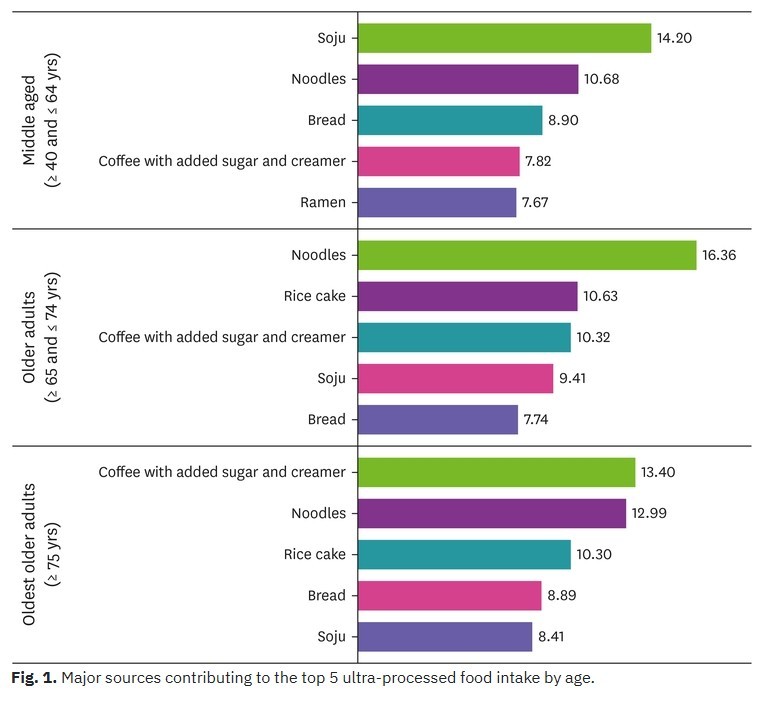The Korean Nutrition Society has announced the results of a study on the consumption of ultra-processed foods (UPFs) among Koreans. The study was published in the February 2025 issue of the Journal of Nutrition and Health and focused on the consumption status and nutritional impact among middle-aged and elderly individuals.
According to the study, groups with a high proportion of ultra-processed food consumption showed an increase in total energy and fat intake, while intake of essential nutrients such as vitamins A, C, and folic acid was relatively low. In particular, the high sodium intake indicated a significant risk of nutritional imbalance.
There was a clear difference in consumption trends by age group. Among middle-aged individuals, soju accounted for 14.2% of total energy intake, marking the highest contribution, followed by noodles (10.7%) and bread (8.9%). In contrast, among the elderly, noodles (16.3%), rice cakes (10.6%), and coffee with cream and sugar (10.3%) were identified as major ultra-processed foods. For the very elderly, mix coffee (13.4%) and noodles (12.9%) ranked high.

These results suggest that consumption patterns of ultra-processed foods vary by age group. An approach considering the impact on health of specific components such as sugars, sodium, and saturated fats, rather than just the form or cooking method of the food, is necessary.
Professor Ki-rang Kim from Dankook University, who led the study, emphasized, “Although the types of ultra-processed food consumption differed by age, the higher the consumption proportion, the greater the risk of nutritional imbalance. Instead of completely restricting ultra-processed foods, a selective management strategy considering consumption patterns is needed.”
Meanwhile, public health policies to suppress the consumption of ultra-processed foods are already being promoted abroad, and the World Health Organization (WHO) has warned about the association of ultra-processed foods with chronic diseases such as obesity, cardiovascular diseases, and diabetes.
The Korean Nutrition Society stated that this study highlights the need to regularly monitor the status of ultra-processed food consumption domestically and to incorporate these findings into public nutrition policies.